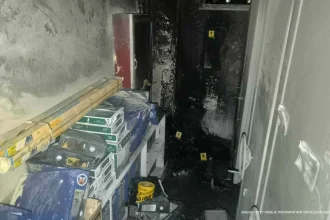
Metro Manila, Philippines – Nearly all barangay in Quezon City are clear from epidemic levels in dengue cases since the outbreak declaration almost two months ago, the local government said.
In a statement on Thursday, April 10, the Quezon City government said its health department recorded a significant 90 percent decline in dengue cases.
Its data showed infections went down to 64 on April 2 to 8, from 626 on Feb. 16 to 22.
The local government cleared 123 barangay from outbreak status but 19 villages “remain within the epidemic threshold.”
Quezon City declared a dengue outbreak in February. At the time, the Department of Health (DOH) said there were eight more areas with a “concerning rise” of dengue cases in Calabarzon, Central Luzon, and Metro Manila.
As of March, the DOH reported 76,425 dengue cases nationwide or 78% higher than last year’s 42,822 cases.
But the agency said the case fatality rate remained low at 0.41 percent.
Calabarzon topped the regions with the highest number of infections at 15,108, Metro Manila at 13,761, and Central Luzon at 12,424.
The DOH advised Filipinos to seek early consultation when they contract the mosquito-borne viral infection.
It said warning signs of severe dengue include stomach pain, vomiting, bleeding in the nose and gums, and weakness.
Quezon City Mayor Joy Belmonte said authorities will not be complacent amid the drop in cases.
“The changing climate — especially the unexpected rains during summer — means that water can easily accumulate in uncovered containers, creating breeding grounds for dengue-carrying mosquitoes,” Belmonte was quoted as saying.
“While we have already scaled down our interventions in barangays under low alert, we must continue to keep our communities clean and vigilant — especially when it comes to the health of our children,” she said.
The local government said intensified clean-up drives, fogging and spraying, and larviciding in zones where dengue cases are clustered, among other interventions will continue.
It assured the public that free dengue test kits in city health centers and hospitals and “fever express lanes” will be maintained.
It also reminded the public to use mosquito repellent, wear long-sleeved clothing as personal protective measures, as well as regularly inspect their homes and environment for stagnant water in objects that could be mosquito breeding sites.
















